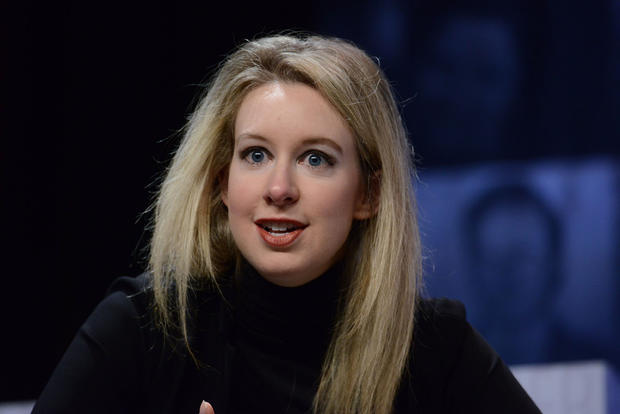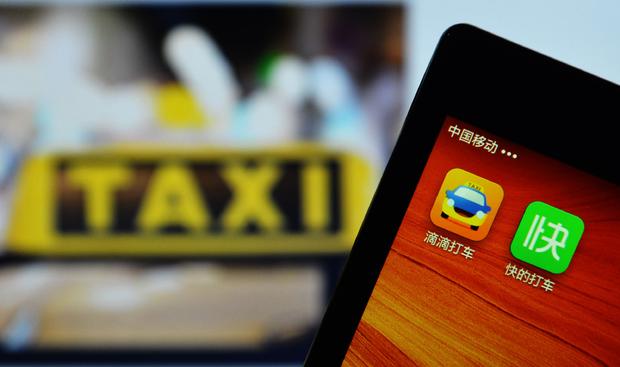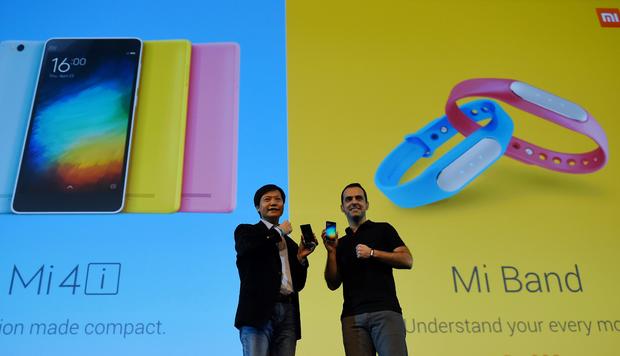The 13 most valuable startups and spinoffs
It turns out that unicorns aren't all that mythical or rare, at least when it comes to the modern meaning of the word.
These days, unicorns are private companies that have valuations of at least $1 billion. They're the type of hot startups that make investors salivate at their growth potential, prompting them to pour in more venture capital in the hopes of chasing down a mythical monstrous return.
While the name connotes something rare and beautiful, this kind of unicorn is becoming increasingly common, thanks to a surge in investment capital not only from venture capital firms, but hedge funds, corporations and high-net-worth individuals like Facebook co-founder Mark Zuckerberg.
That's evident in the number of newly christened unicorns this year. A new report from CB Insights and KPMG finds 23 unicorns across the globe, with 17 based in the U.S.
"There's a big demand for companies that are growing really fast and tackling these big opportunities," said Anand Sanwal, chief executive of CB Insights. "There aren't many companies like that, and as a result, you end up with these mega-financing rounds. A lot of them are now driven by hedge funds, corporations and atypical investors."
With more investors chasing the hottest private companies, that has led to higher and higher valuations, and the creation of "uber Unicorns," or private businesses with valuations of at least $10 billion. The market has become so hot that it's raising questions about whether the tech industry -- which tends to produce more unicorns than other industries -- is in the midst of another bubble.
So far, investors remain hopeful that valuations will keep rising, at least in the private arena. The public markets haven't been as receptive to IPOs and newly public companies as in past years, as evidenced by companies such as Etsy (ETSY), the online craft marketplace that's lost 19 percent of its market value since going public in April.
"There are people who say they're worried or that the markets are overheated," Sanwal said. Still, he said he's not seeing evidence of a slowdown.
But there are company-specific risks, such as when a once-hot startup fails to deliver on its promise to revolutionize its industry. Questions have been raised about Theranos, for instance, the biotech startup that promises to quickly process blood tests from patients' finger-pricks. But The Wall Street Journal has reported that only a fraction of its tests sold to consumers use its new technology.
When it comes to unicorns that turn out to be goats, the damage might not be as widespread as with failures in the public markets, given that it's only VCs and wealthy investors who may lose their well-tailored shirts.
Read on about the top 13 private companies by valuation.
13. Theranos: $10 billion
A much-hyped medical startup, Theranos has drawn investors such as famed VC firm Draper Fisher Jurvetson and tech billionaire Larry Ellison, founder of Oracle.
In July, founder Elizabeth Holmes told Bloomberg News Theranos' valuation stood at $10 billion. Still, whether the blood-test company can continue to attract investors at the same pace may be in doubt after an investigation by The Wall Street Journal that claims Theranos isn't actually using its own tech in the bulk of its blood tests.
The company's general counsel told The Journal that its lab work is accurate and that it has performed tests on millions of patients. Still, given that Theranos is a private company, not much is known about its operations or financial details.
12. Ferrari: $10 billion
The legendary Italian automaker is one of the only nontech companies to make the list. Its strength in old-world auto technology (albeit of the most exotic variety) and its luxury brand are creating buzz around its initial stock offering, which Bloomberg News reported earlier this month is oversubscribed.
The IPO will sell 10 percent of Ferrari's shares on the New York Stock Exchange, giving the sports-car maker a $10 billion valuation.
11. WeWork: $10 billion
WeWork Companies reached a $10 billion valuation in June after investors including Fidelity Management & Research invested $400 million. WeWork provides shared office space for tech startups and small businesses.
Its business model works by renting out office space from a landlord, then leasing smaller portions of that space to other businesses for higher per-foot rates. The company's gloss includes the kinds of perks that are enjoyed by Silicon Valley employees, such as office screening rooms, arcades and lounges.
10. Dropbox: $10 billion
This file storage and sharing company is valued at $10 billion, thanks to influxes of cash from investors such as Goldman Sachs and BlackRock. But that valuation is "irrational," according to an analysis from CB Insights, which examined the gap in value between Dropbox and publicly traded rival Box (BOX), with its $1.6 billion valuation.
That shows why some companies prefer to remain private, said CB Insight's Sanwal. "Dropbox has a much loftier valuation than Box does," he said. "The public market might not be as receptive or forgiving" of tech companies that are still losing money, as is Box.
9. Pinterest: $11 billion
Back in March, Pinterest pinned a new round of financing, giving it a valuation of $11 billion. The image-bookmarking website has attracted investors such as venture capital firms Andreessen Horowitz and Bessemer Venture Partners.
8. SpaceX: $12 billion
Here's a valuation that has blasted into outer space, thanks to a reported $900 million investment from Google, which bought a 7.5 percent stake in the space exploration company founded by Tesla's Elon Musk.
Launched in 2002, the company manufactures and launches rockets and spacecraft, but not everything has been blue skies. Earlier this year, one of its rockets exploded after launching on its way to the International Space Station.
7. Flipkart: $15 billion
This Indian e-commerce company has gained a big valuation, thanks to the size of its market: the country's growing middle class. Investors include the New York-based investment manager Tiger Global Management.
India has 243 million Internet users, and it's expected to reach more than 500 million mobile Internet users by 2020, the company said last year.
6. Snapchat: $16 billion
With investors such as Chinese e-commerce giant Alibaba, the messaging service has ballooned to a $16 billion valuation.
One reason for such a rich figure is the service's popularity with millennials, which make up about 45 percent of its user base, according to Business Insider. Only 16 percent of Facebook's audience are millennials, a much sought-after group among advertisers.
5. Didi Kuaidi: $16 billion
This company is the Chinese answer to Uber. Interestingly, it has attracted funding from Lyft, one of Uber's main rivals, as well as from Alibaba and Tencent Holdings.
Didi Kuaidi offers taxi-hailing and private car services, and operates in more than 300 Chinese cities.
4. Palantir: $20 billion
Many Americans may never have heard of this data-analytics company, which is known for its secretiveness. Part of the buzz comes from its founders, who include billionaire Peter Thiel, a co-founder of PayPal and an early investor in Facebook.
According to TechCrunch, the business works on data analysis for three industries: finance, legal research and government.
3. Airbnb: $25.5 billion
Many consumers have tried out Airbnb, which allows people to rent out other people's houses when they go on vacation. The service has expanded to dozens of cities and countries, but with its popularity has come growing pains as regulators in some towns are pushing back, citing noise and safety concerns.
Investors include Tiger Global Management and private equity firm General Atlantic.
2. Xiaomi: $46 billion
This Chinese smartphone maker aims to out-Apple Apple (AAPL) by creating sleek devices that come with a lower price point than its U.S. rival. That's drawn investors such as Alibaba Chairman Jack Ma.
Xiaomi's ambitions aren't limited to China. The company is expanding to markets such as India and Brazil, as it seeks to keep its fast revenue growth.
1. Uber: $51 billion
There's a new alpha unicorn. Taxi-hailing company Uber shot past Xiaomi as the world's most highly valued private business when it completed a new round of funding earlier this year that included Microsoft as an investor.
According to The Wall Street Journal, Uber is losing money in many cities where it operates. It's also dealing with regulatory issues in some cities, and some high-profile cases involving its drivers attacking, raping or hurting passengers. Still, the opportunity is too enticing for many deep-pocketed investors to pass up.













